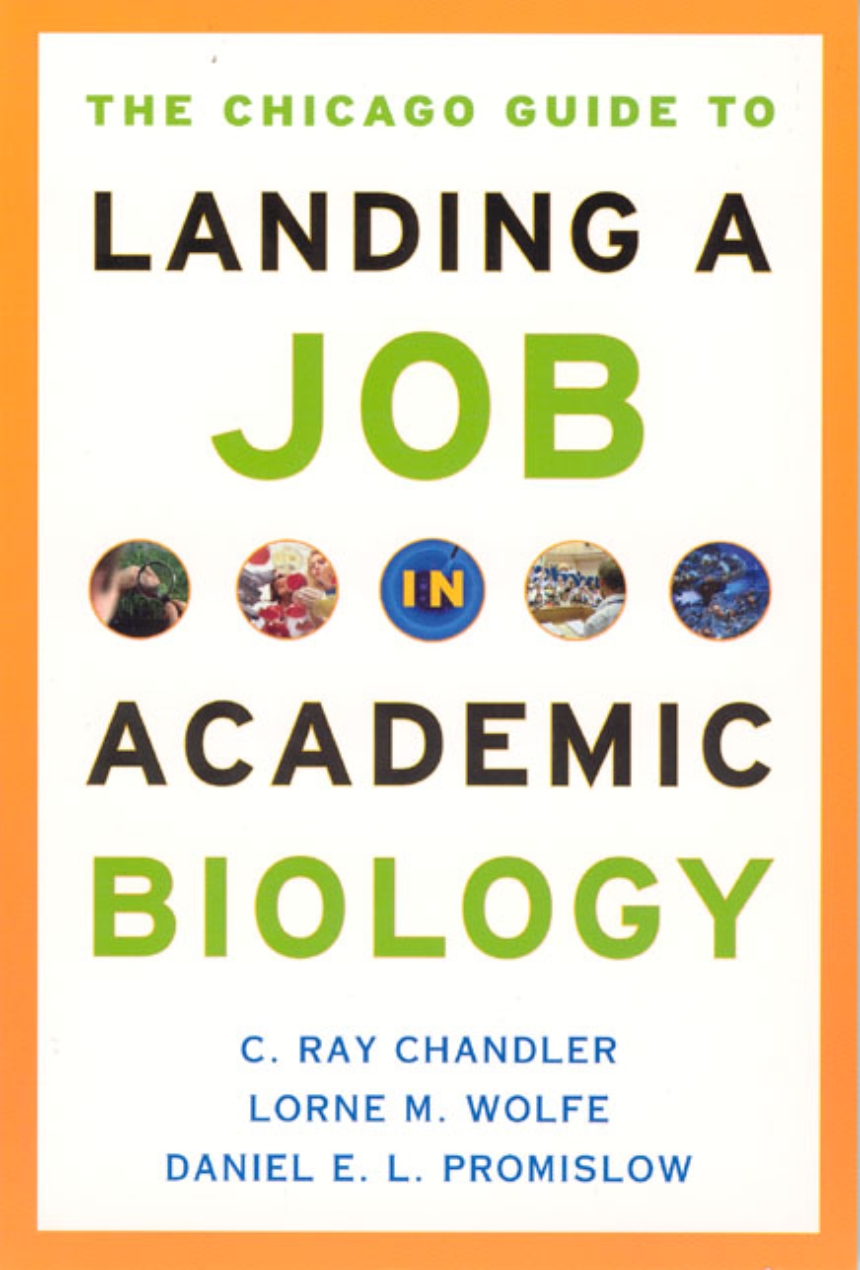The Chicago Guide to Landing a Job in Academic Biology
An academic career in the biological sciences typically demands well over a decade of technical training. So it’s ironic that when a scholar reaches the most critical stage in that career—the search for a job following graduate work—he or she receives little or no formal preparation. Instead, students are thrown into the job market with only cursory guidance on how to search for and land a position.
Now there’s help. Carefully, clearly, and with a welcome sense of humor, The Chicago Guide to Landing a Job in Academic Biology leads graduate students and postdoctoral fellows through the perils and rewards of their first job search. The authors—who collectively have for decades mentored students and served on hiring committees—have honed their advice in workshops at biology meetings across the country. The resulting guide covers everything from how to pack an overnight bag without wrinkling a suit to selecting the right job to apply for in the first place. The authors have taken care to make their advice useful to all areas of academic biology—from cell biology and molecular genetics to evolution and ecology—and they give tips on how applicants can tailor their approaches to different institutions from major research universities to small private colleges.
With jobs in the sciences ever more difficult to come by, The Chicago Guide to Landing a Job in Academic Biology is designed to help students and post-docs navigate the tricky terrain of an academic job search—from the first year of a graduate program to the final negotiations of a job offer.
176 pages | 12 halftones, 54 line drawings, 4 tables | 6 x 9 | © 2007
Chicago Guides to Academic Life
Biological Sciences: Anatomy, Behavioral Biology, Biology--Systematics, Botany, Ecology, Evolutionary Biology, Physiology, Biomechanics, and Morphology, Tropical Biology and Conservation
Guides, Manuals, and Reference: Guides for Graduate Students, Guides for Scholars, Guides for Scientists
Reviews
Table of Contents
Acknowledgments
1: The Academic Job Market
2: Choosing a Graduate Program
3: Prepare Early for Your Job Search
4: Target Your Job Search
5: The Application
6: Preparing for the Interview
7: The Interview
8: The Seminar
9: Social Time
10: The Negotiations
11: All in the Family
Afterword
References
